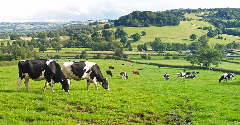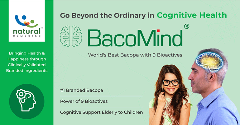News
Edible Insects: The Protein of the Poor?
22 Oct 2014While three quarters of the food industry and NGOs claim to be looking for solutions to solve the challenge of feeding the world’s growing population, two vital questions still go unanswered: How will corporate responsibility initiatives lead to finding solutions to the world food challenge? How prepared are we as citizens (and corporations) to take the […]

While three quarters of the food industry and NGOs claim to be looking for solutions to solve the challenge of feeding the world’s growing population, two vital questions still go unanswered:
- How will corporate responsibility initiatives lead to finding solutions to the world food challenge?
- How prepared are we as citizens (and corporations) to take the steps necessary to reduce biodiversity devastation?
Is there no other way or viable alternative?
A small, mighty and much-overlooked source of protein has been buzzing around news and media channels over the past decade: entomophagy, otherwise known as the consumption of insects as food.
Entomophagy is already common in many parts of the world. Slowly but surely, the prospect of introducing insects into our daily diet as a viable alternative for North Americans and Europeans is gaining traction. Once the personal opinions and genuine “ick factor” are set aside, that is.
In an attempt to dismiss insect protein as a viable alternative, many say edible insects are food for the poor. In some regions of the world where resources are scarce, insect protein may be the only alternative. But to assume it is a poor man’s food is to insult some fellow countries’ cultures where edible insects are a staple, traditional food and even, in some cases, a true delicacy!
The immediate challenge, however, is to move forward on resolving regulatory issues and establishing a scalable way of breeding, transforming and distributing edible insects as a significant protein source for human consumption.
Progress and awareness are being made thanks to top universities worldwide and the dedication of entomology experts such as Professors Eric Haubruge, Jürg Grunder and Arnold van Huis and companies like New Generation Nutrition BV, Insect Europe BV, Aspire among other brave ones.
Today, effective support is limited only to two or three pioneering authorities and Research Centers with vision. One day in the near future, my hope is that the “taboo” around including insects in our diet will soften, and that the subject will be brought up more frequently at planetary conferences and congressional committees.
Can entomophagy solve all the world’s protein deficiency problems or demands? No – but it is certain that, given the right opportunity, it will prove itself to be a significant natural, eco-friendly solution in a circular economy.
So next time you find yourself frowning at the thought of diving into a cricket taco or adding insect protein powder to your breakfast smoothie, remember this: lobster was once the scavenger of sea, the “food of the poor” and is now a delicacy on our plates, and escargot (those slimy creatures crawling over many five star restaurant tables) is a multi-million dollar industry with the going price for snail caviar at £90 per jar.
Interested in learning more about the future of insect protein? Visit FAO’s Edible Insects: Future prospects for food and feed security.
Related news

Has ‘clean’ had its day?
22 Dec 2025
Wielding clean-label positioning and fortification as marketing levers is a dangerous strategy, and brands would be better off explaining the hows and whys of the ingredients in their products, say experts.
Read more
Celebrating the winners of the Fi Europe Innovation Awards 2025
3 Dec 2025
Food industry stakeholders celebrated as the winners of the Fi Europe Innovation Awards were announced at a ceremony in Paris.
Read more
Alternative protein startups pivot to B2B ingredients amid funding shift
27 Nov 2025
Alt protein startups are pivoting from consumer meat analogues to high-value B2B ingredients, driven by stronger investor interest, better margins, and clearer commercial pathways.
Read more
Walmart Marketplace’s record growth prompts search for UK sellers
26 Sep 2025
Walmart’s third-party e-commerce platform, Marketplace, has witnessed extraordinary growth – but a need for more product diversity has prompted the retailer to recruit UK sellers.
Read more
The winners of Vitafoods Europe Startup Challenge 2025 revealed
29 May 2025
Four startups – Yomio Drops, PFx Biotech, Revobiom, and Favamole – took top prizes at this year’s Vitafoods Europe Startup Challenge awards.
Read more
East takes on West in the fight for future food flavours
30 Apr 2025
Asian and South American flavours are now key components on global menus, driven by a growing global appetite for culinary mashups.
Read more
Food companies urged to bring ‘joy’ and urgency to healthy food mission
14 Mar 2025
For too long, businesses have treated health and sustainability as separate agendas – but there is growing evidence to show diets that benefit human health can also enhance that of the planet, say experts.
Read more
Entries open for inaugural Vitafoods Europe Innovation Awards
29 Jan 2025
Entries are open for the inaugural Vitafoods Europe Innovation Awards, celebrating the ingredients, finished products, partnerships, and initiatives redefining the nutraceutical landscape.
Read more
Paris Olympics: Food and beverage brands champion health, fun, and sustainability
5 Aug 2024
Food and beverage brands are aligning with the Paris Olympics 2024 Food Vision, which emphasises sustainability, local sourcing, and plant-based diets.
Read more
Natural Remedies: Bringing health and happiness via validated branded ingredients
18 Apr 2024
Natural Remedies is an internationally renowned botanical healthcare company committed to advancing the field through rigorous research and the development of clinically validated Branded Ingredients. Guided by our foundational principle of ‘BEING USEF...
Read more